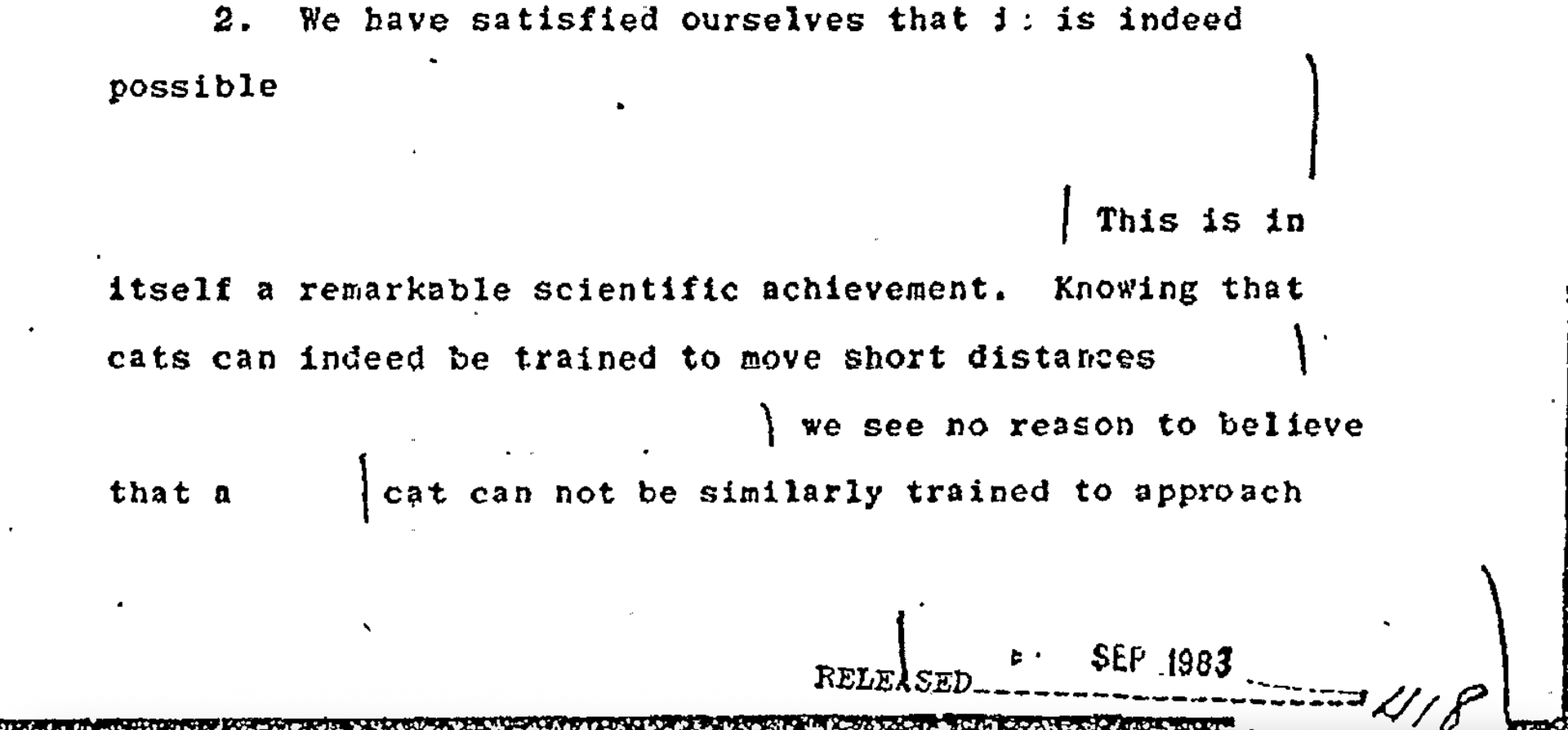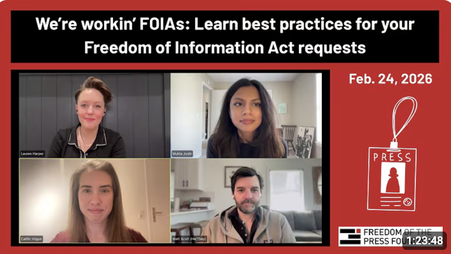Dear Friend of Press Freedom,
I’m Lauren Harper, the first Daniel Ellsberg chair on government secrecy at Freedom of the Press Foundation (FPF), and welcome to “The Classifieds.” Read on to learn about this week’s top secrecy news.
John Oliver tackles the presidential library loophole
In a must-watch segment, late-night host John Oliver detailed how building presidential libraries, which are intended to promote access to historical records, have provided loopholes for massive, often undisclosed donations to sitting presidents — with virtually no oversight.
To make matters worse, public access to records stored at presidential libraries is at an all-time low.
These twin problems make it too difficult to know what current administrations are doing, and what past administrations have done.
Luckily, Sen. Elizabeth Warren has introduced the Presidential Library Anti-Corruption Act to close the library loophole. It’s a good bill, but Congress doesn’t need to stop there.
It can also increase funding for the National Archives and Records Administration, which is responsible for overseeing the presidential library system. But because NARA’s budget has remained stagnant for 30 years, it can now take more than a decade for presidential libraries to respond to a single declassification request.
Here’s how you can help: Use our action center tool to tell your representative to support Warren’s bill and increase transparency.
Classified memo that sanctions cartel strikes must be disclosed
CNN confirmed the Department of Justice is relying on a classified legal opinion to conduct its strikes against alleged drug boats in the Caribbean.
FPF suspected a rationale existed in the immediate aftermath of the first strike in early September. So we filed a Freedom of Information Act request demanding the DOJ release it.
So far, the DOJ has stonewalled us.
We’re not alone.
Attorney General Pam Bondi, who gives meaningless lip service to transparency, refused to disclose or even discuss the rationale during a recent Senate hearing, despite concerns raised by military lawyers that the administration may be breaking the law.
Bondi is not the only attorney general to defend the DOJ’s long-running tradition of keeping important legal opinions secret. Her predecessors tried to hide opinions on everything from sanctioning the CIA’s torture program to the National Security Agency’s illegal warrantless surveillance program of Americans.
Fortunately, hard-fought legal battles have won the release of a handful of these memos.
But the fight to end secret law is ongoing, and it looks like the public will have to sue to force Bondi to release the government’s justifications for attacking cartels.
It’s a fight worth having. As is continuing to push for an end to all secret legal opinions.
Here are my top reads from this week. To see my full reading list for all things secrecy, check out The Classified Catalog.
What I'm Reading
Flock Safety and Texas sheriff claimed license plate search was for a missing person. It was an abortion investigation
This harrowing article about law enforcement abusing Flock license-plate reader data, and getting caught lying about it, is a prime example of how local public records requests help tell stories of national importance.
Another Signal scandal? Texts suggest Team Trump eyed 82nd Airborne for Portland
An aide to White House policy adviser Stephen Miller was recently observed sending Signal messages to an aide to Defense Secretary Pete Hegseth about plans to send the Army’s 82nd Airborne Division to Portland, Oregon. This underscores that federal officials are still using disappearing messaging apps that make it difficult, if not impossible, for records to be preserved.
How some veterans exploit $193 billion VA program, due to lax controls
The Washington Post filed a FOIA lawsuit to help win the release of records, including surveillance footage, showing that some veterans are defrauding the Department of Veterans Affairs. The release of the video footage is a good reminder that agencies can, and often should, release videos in response to FOIA requests.
Transparently yours,
Lauren Harper
Daniel Ellsberg Chair on Government Secrecy
Freedom of the Press Foundation

P.S. In October, we’re looking back at some of the eeriest government documents that have been released, largely thanks to FOIA. This week, we’re bringing you the Acoustic Kitty files — the CIA’s attempt to create cyborg spy cats by putting batteries in their guts, using their tails as antennae, and training them in espionage. It didn’t go well, but you wouldn’t get that from the CIA’s trained cats memo.





